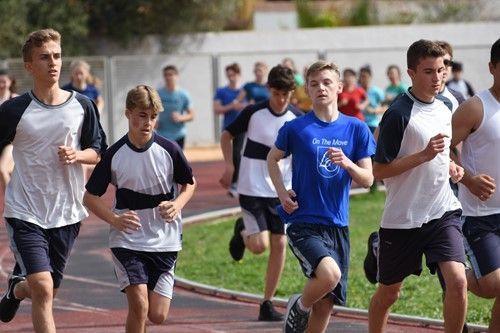The importance of sports education in a school program
Sports education is a basic topic of the school process. Improving motor skills and learning a series of healthy routines are the two main advantages of physical sports education, so it is important that students of all ages have adequate sports facilities that offer the possibility of practicing different sports in safe environments.
At Lady Elizabeth School we have the most complete sports facilities and academic programs that include sports practice throughout all educational stages.
What is sports education and what is its importance?
Sports education is based on sports-related activities to stimulate different physical and cognitive abilities. Physical sports education has a vital importance in the development of a person, from the age of 3 we learn all kinds of motor skills that are essential to relate to our environment, in addition, the practice of different sports will require us to make quick decisions in different circumstances, which will improve our analytical skills.
The main benefits of sports in the academic curriculum are the following:
- It improves motor skills and movement-related abilities.
- Reinforces creativity and decision making.
- Increases coordination from an early age.
- Avoids injuries during the growth stage.
- Sport is related to learning healthy routines.
- Improves neuromuscular capacity.
- Strengthens emotional and social aspects.
- Encourages lateral thinking and the search for solutions.
Sport and health at early ages
The regular practice of sports is one of the bases to take care of health at any age. Several studies have shown that students who acquire sports routines are more likely to maintain healthy routines during adulthood.
Sport reduces the chances of suffering from diseases related to sedentary lifestyles, a person who practices sports from school age will acquire a series of physical routines that will be essential to take care of their health in the future. From the educational centers we must be able to transmit these values to our students, relating sports practice and health as a basic habit for their development.
Facilities and spaces for sports practice
At Lady Elizabeth School we have different spaces oriented to the practice of sports. The most important facilities of our school are the following:
- Artificial turf soccer field.
- Outdoor multi-sports court.
- Indoor gymnasium with bleachers.
- 25-meter indoor swimming pool.
Both the soccer fields and the multi-sports courts allow us to encourage the practice of group sports, in spaces conditioned so that students of all ages can enjoy their favorite sports. The gymnasium allows us to develop indoor activities, regardless of weather conditions.
Our school facilities include a 25-meter swimming pool, so our students can enjoy swimming activities. Swimming is an activity that encourages the use of all muscle groups, which is why it is one of the most recommended sports for growing children.
Sports practice and social values
One of the main advantages of sport at an early age is that students can learn and practice values related to effort, solidarity and group collaboration.
All sports are based on the achievement of objectives based on collaboration, feeling part of a team and providing a series of individual skills is the best implementation for situations that will be a reflection of their daily life. A child who learns sports routines will be able to establish habits that are essential beyond sports practice.
Sports competition is also related to self-improvement and personal effort. A student can perceive a continuous improvement in their abilities through the regular practice of group sports, this process of personal improvement can be extrapolated to other areas of learning.
At our school, sports are a fundamental part of learning. From infant students who begin to familiarize themselves with the motor development of their own body, to pre-university students who choose sports scholarships and need to practice sports on a daily basis, our school guarantees the best environment and a method of education that gives vital importance to sport.
Sport and emotional management
Another of the basic aspects that are put into practice in sport is emotional management. During a sporting competition, emotional factors come into play that hardly occur in other areas of education, for a student it is important to identify and manage the affective level of sport through practice.
Positive emotions such as joy, interest or pride, coexist permanently in sport with negative emotions such as frustration or sadness, framing these feelings in the sports environment allows reinforcing the student’s emotional skills and applying them in other areas of their daily life.
Sports education at Lady Elizabeth School
Sports have a decisive influence on our academic programs. A student who perceives the importance of sports for his or her health and education will be an adult capable of maintaining key sports routines for his or her future. At Lady Elizabeth we encourage the practice of sports during all school stages, regardless of the innate abilities of each student.
One of the advantages our school has over other schools is its sports facilities. In addition to the outdoor multi-sports facilities, there is the possibility of following a complete swimming program in a 25-meter indoor pool. Activities related to movement are very important during the growing stages, and our sports facilities are the best environment for them to begin to enjoy sports practice and learn values related to competition.
As it happens in other subjects, sport is based on a permanent learning process, our objective is based on getting our students to acquire a commitment with their health, and to perceive sport as an important part of their daily activity.

